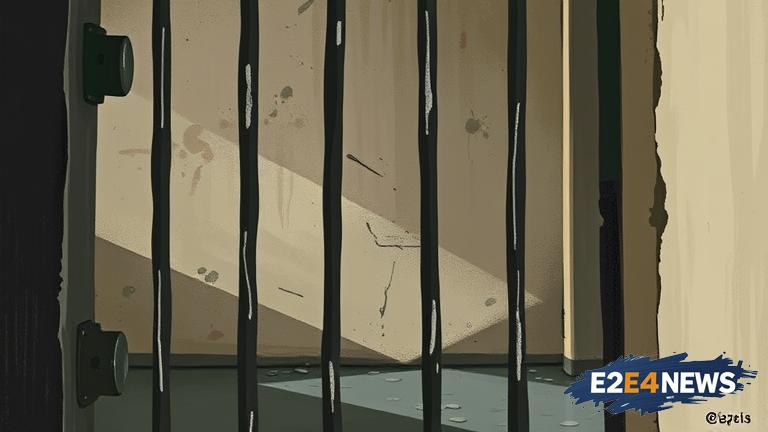The plight of Palestinian prisoners in Israeli jails has been a longstanding issue, with many facing harsh conditions, including medical neglect, torture, and isolation. Despite international condemnation, the Israeli authorities continue to detain Palestinians, often without charge or trial. The prisoners are subjected to inhumane treatment, including physical and psychological torture, and are frequently denied access to medical care, leading to a deterioration of their health. The Israeli prison system has been criticized for its use of solitary confinement, which can have severe psychological effects on prisoners. Many prisoners are also denied family visits, exacerbating their isolation and distress. The situation is further complicated by the fact that many prisoners are detained in facilities located inside Israel, making it difficult for their families to visit them. The Palestinian Authority has repeatedly called for the release of all Palestinian prisoners, citing the need to end the suffering of those detained. However, the Israeli government has refused to comply, claiming that the prisoners pose a security threat. Human rights organizations have condemned the treatment of Palestinian prisoners, citing violations of international law and the need for accountability. The issue has sparked widespread protests and demonstrations, both within Palestine and internationally. Many have called for boycotts and sanctions against Israel, in an effort to pressure the government to improve the treatment of prisoners. The United Nations has also weighed in on the issue, with the Special Rapporteur on the situation of human rights in the Palestinian territories occupied since 1967, Michael Lynk, expressing concern over the conditions faced by Palestinian prisoners. Lynk has called for the Israeli government to take immediate action to address the situation, including providing adequate medical care and ending the use of solitary confinement. The European Union has also expressed concern over the treatment of Palestinian prisoners, with the EU’s High Representative for Foreign Affairs and Security Policy, Josep Borrell, calling for the Israeli government to respect its obligations under international law. Despite these calls, the situation remains dire, with many prisoners continuing to face harsh conditions and medical neglect. The Palestinian prisoners’ movement has been at the forefront of the struggle for Palestinian rights, with many prisoners engaging in hunger strikes and other forms of protest to highlight their plight. The movement has gained widespread support, both within Palestine and internationally, with many seeing the prisoners as symbols of resistance against Israeli occupation. The issue of Palestinian prisoners is closely tied to the broader context of the Israeli-Palestinian conflict, with many prisoners detained for their involvement in resistance activities. The conflict has been ongoing for decades, with the Israeli government’s occupation of Palestinian territories remaining a major point of contention. The international community has repeatedly called for a resolution to the conflict, with the establishment of a sovereign Palestinian state being a key demand. However, a lasting solution has yet to be found, and the situation remains volatile. In recent years, the conflict has escalated, with increased violence and tensions between Israelis and Palestinians. The situation has been further complicated by the Israeli government’s expansion of settlements in the occupied territories, which has been widely condemned as a major obstacle to peace. The Palestinian prisoners’ issue is just one aspect of the broader conflict, but it remains a critical one, with many seeing the release of prisoners as a key step towards a lasting resolution. The international community must continue to pressure the Israeli government to improve the treatment of Palestinian prisoners and to work towards a comprehensive solution to the conflict.
